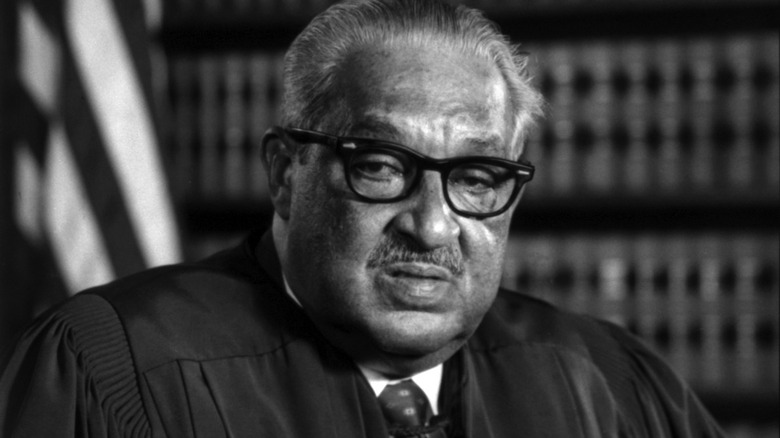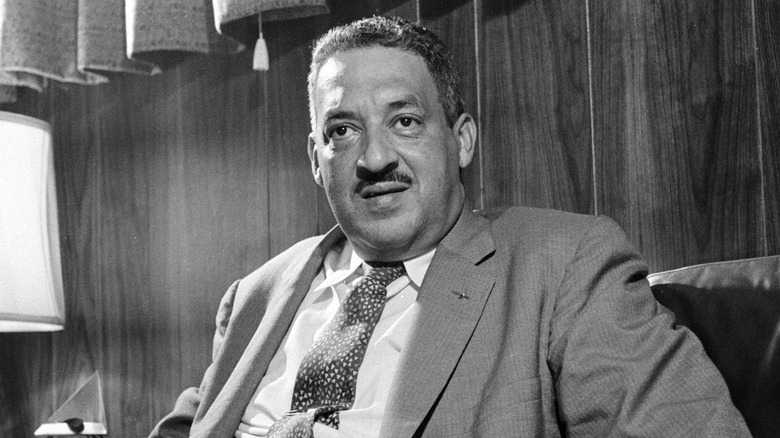Thurgood Marshall's Complicated Relationship With The FBI
In 1996, USA Today broke the news that the late Supreme Court justice and civil rights lawyer Thurgood Marshall had acted as an informant for the Federal Bureau of Investigation in the 1950s (via the Chicago Tribune). This story only surfaced after the FBI finally responded to a request for the agency's files on Marshall through a Freedom of Information request, according to USA Today (via United Press International). Marshall died in 1993, and the FBI took three years to turn over roughly 1,300 pages' worth of material on the late justice.
The information gleaned from the files took many by surprise. His own son, Thurgood Marshall Jr., told USA Today that his father's involvement with the FBI was "an ironic twist," considering his father's early clashes with the agency (via CNN). Marshall was the first director-counsel of the National Association for the Advancement of Colored People (NAACP) Legal Defense Fund, and held this position from 1940 to 1961 (via the Legal Defense Fund). And he had publicly criticized FBI director J. Edgar Hoover and the FBI. He felt that the agency didn't do enough to protect African Americans in the South, and he and Hoover had an exchange of angry letters on the subject (via Thurgood Marshall website).
Marshall and Hoover hated communists
The relationship between Marshall and Hoover, however, evolved into a type of begrudging respect (and maybe some form of friendship) over time. Apparently the pair shared an intense dislike for communists. This was after World War II, when fears about communists infiltrating America reached a fever pitch known as the Red Scare. Marshall tipped off the FBI about possible communists within the NAACP. Hoover "was convinced that I was responsible for routing the commies out of the NAACP. And I did," Marshall once said, according to the Thurgood Marshall website. He wanted to protect the civil rights organization from communist influence.
Marshall also gave information to the FBI about more militant members of NAACP, including Robert Williams, an activist whom History describes as advocating that people "take up arms to gain African American rights." Marshall's willingness to leak some items to the agency may also reflect his skill as a political strategist. Marshall had the support of Hoover as Marshall sought judicial appointments, becoming a circuit judge in 1961. In 1967, Marshall made history as the first African American to be appointed to the U.S. Supreme Court (via The Baltimore Sun).

